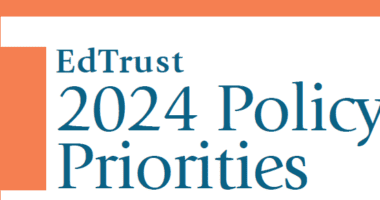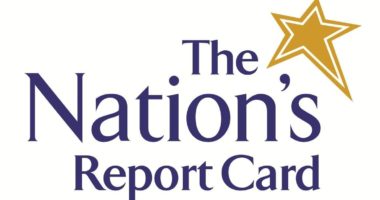Statement From The Education Trust on Chairman Lamar Alexander’s ESEA Draft
WASHINGTON (January 15, 2015) — The Education Trust issued the following statement today on Sen. Lamar Alexander’s (R-Tenn.) draft of the Elementary and Secondary Education Act (ESEA), the Every Student Ready for College or Career Act of 2015:
“There is an emerging consensus among leaders in the education,business, civil rights, and disability communities on a framework for reauthorization that includes maintaining statewide annual tests, publicly reporting the results of those tests for every group of children, and — most important — acting on the results. There are elements of this framework in Senator Alexander’s draft, which gives us hope for a strong bi-partisan bill. But those elements need to be considerably strengthened if the law is to take us forward, instead of back to a time when the nation’s most vulnerable students were neither expected to achieve nor given the resources they needed.
Over the past decade, our country has made more progress in improving results for low-income children and children of color than at any time since 1980. And students whose disabilities were believed to prevent them from achieving are doing better than ever before. Of course, testing alone didn’t accomplish that: educators, parents and kids did. But the combination of annual assessments, widespread public reporting, and real accountability for schools to improve results for all groups of children helped create information, urgency, real momentum and results.
Senator Alexander’s draft provisions on public reporting and accountability include some attention to performance among the groups of children who have lagged behind, although these need to be strengthened considerably if parents are to have any confidence that their schools will be real partners in making sure their children reach state standards. Unlike in current law, there is no clear expectation of action when some students in a school are not making progress.
But these provisions are built on a foundation of sand, for neither of the draft’s proposed approaches to assessment even comes close to providing the comparable, trustworthy measuring stick that both parents and teachers need. Without that, there is no accountability and even broad public reporting is worthless.
Other key provisions in the draft also need further attention. On the plus side, the draft makes a strong start at addressing the critical issue of ensuring low-income students and students of color have equitable access to effective teachers. Some improvements are still needed, but it is encouraging to see this vexing issue get some attention. More worrisome are some of the financial provisions in the draft, which, paradoxically, threaten to direct resources away from the highest poverty schools that need the most help.
Finally, we want to raise serious questions about the extensive efforts in the draft to radically limit the federal role in education. While we agree that certain elements of current law are unnecessarily and unhelpfully burdensome, we can’t forget that history is full of state and local actions — or sometimes just plain neglect — that did serious harm to the future prospects of the nation’s most vulnerable children. That’s why the federal government needed to get involved in education in the first place: to assure attention to the powerless. Unfortunately, that need has not gone away: Some children are still warehoused in low-quality schools that expect far too little of them. This is why we still need a federal role today — one that’s appropriate and laser-focused on expecting results for all kids and ensuring they have the resources and support necessary to meet those expectations.
“We look forward to working with Congressional leaders on both sides of the aisle to ensure that we have a strong ESEA that will truly serve our nation’s students.”
# # #
The Education Trust is a nonprofit advocacy organization that promotes high academic achievement for all students at all levels, pre-kindergarten through college. Its goal is to close the gaps in opportunity and achievement that consign far too many young people — especially those from low-income families or who are black, Latino or American Indian — to lives on the margins of the American mainstream.






